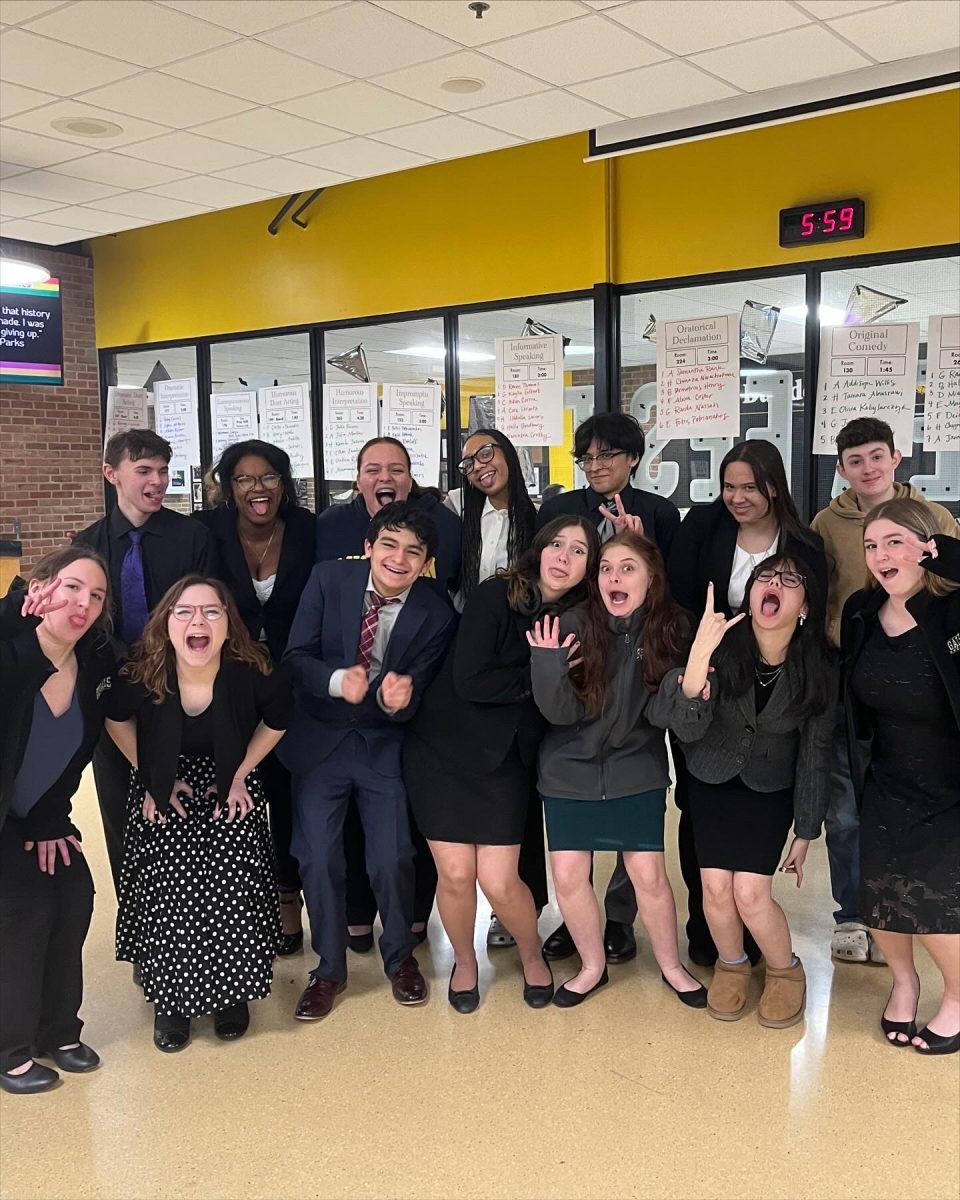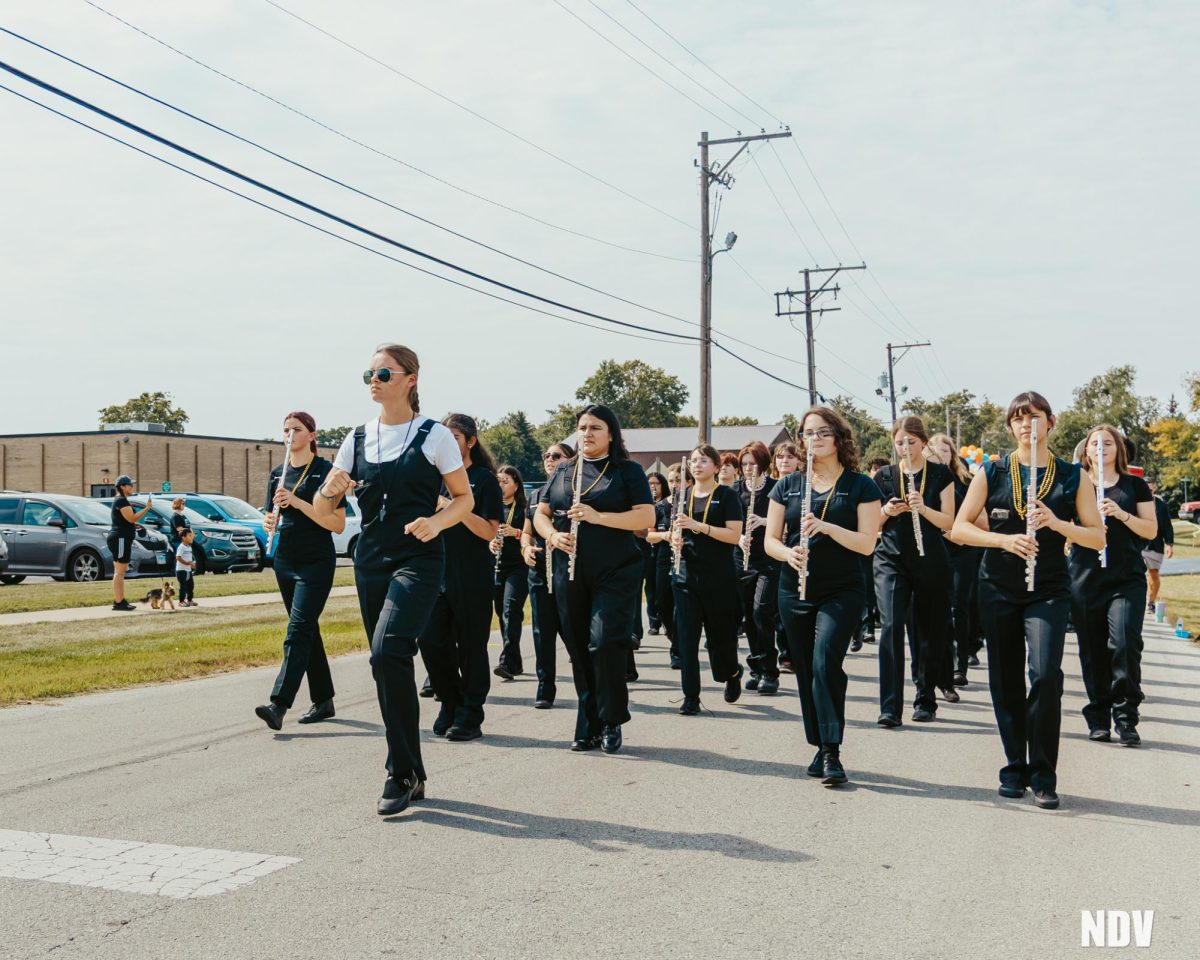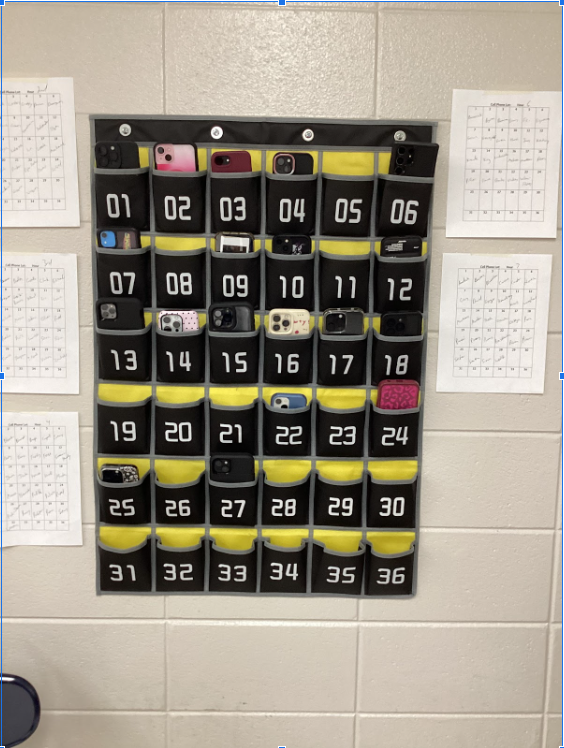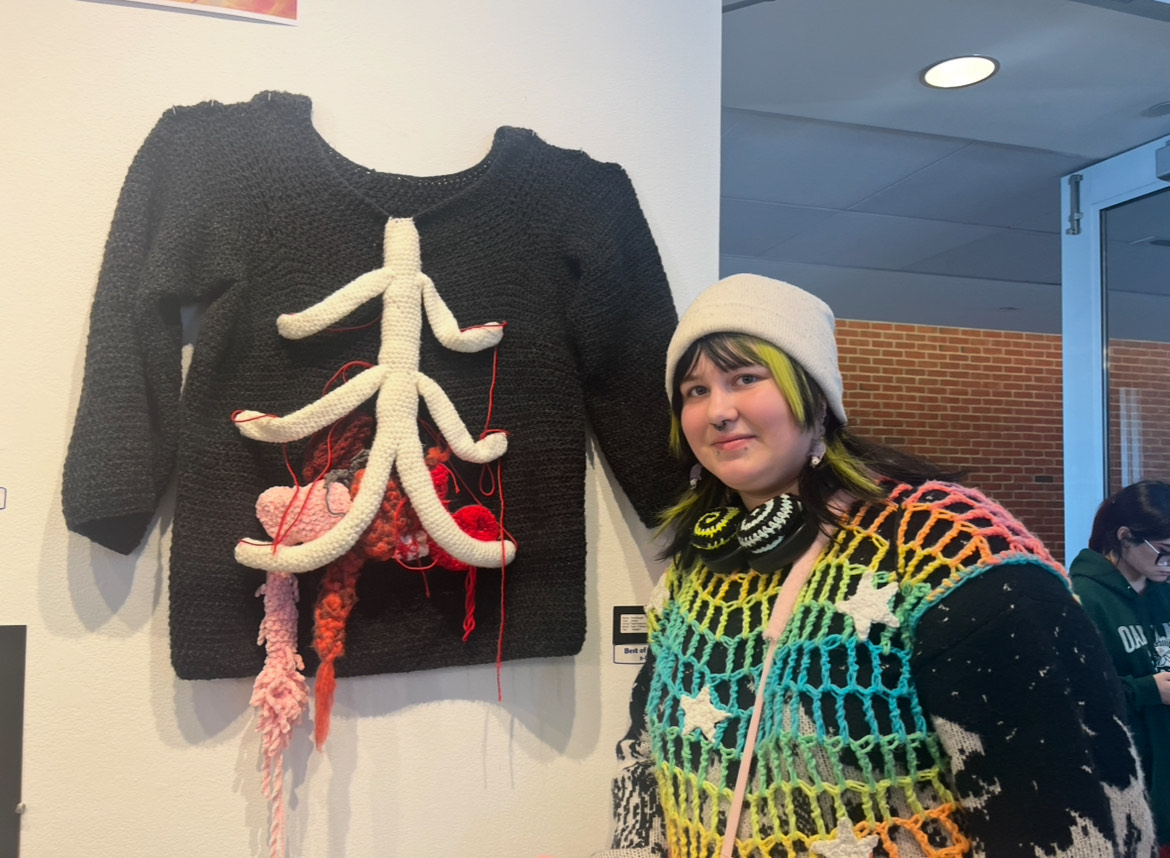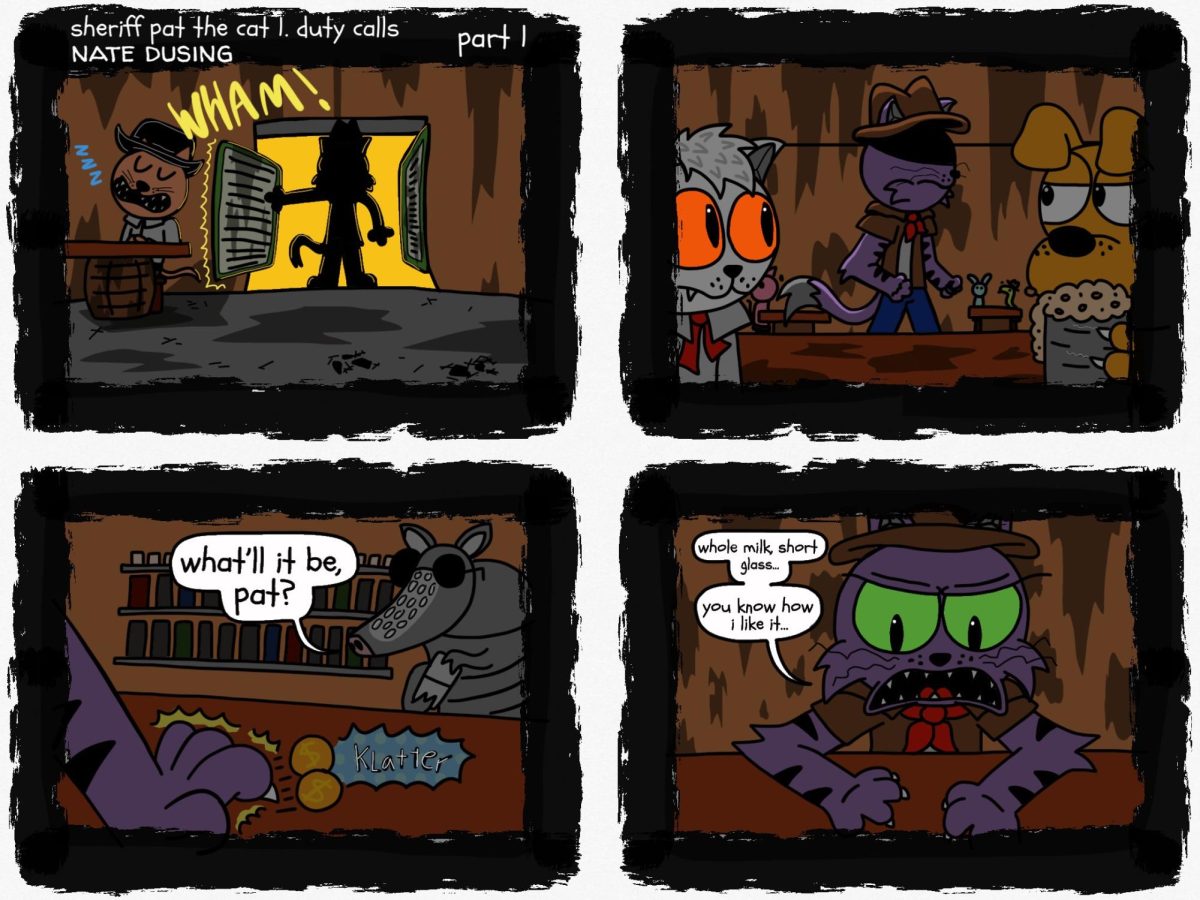What Draws You In
For many high schoolers, joining a club is just another item on a long checklist, something to pad a résumé or do with friends. But for those who find speech, or perhaps are found by it, it becomes something deeper: a space for transformation.
Mikayla Graziano first noticed Speech in the school library. She watched from a distance as the group practiced, its laughter and intensity filling the room. They invited her to join. She declined, saying that she was too nervous. But something lingered. “I’ll do it next year,” she promised. That next year came, and she kept her word. Joining changed everything.

What drew Mikayla in, and what keeps so many students coming back, is the connection between the written word and the spoken performance. Whether it’s personal stories, poems, or speeches written for special occasion, Speech becomes a place where talking, a lot, is not only accepted but celebrated.
The Art of Speaking Your Mind
Students come to speech for different reasons. One team member had a teacher recommend the team after noticing a love for poetry. Others joined because their friends encouraged them to try it out. But what keeps them in is nearly universal: the chance to express themselves fully and freely.
“I didn’t even know what speech was,” Falak Ghanchi said. “But I loved being able to give my opinions through it, especially on poetry.”
Abril Sierra put it simply: “It’s a team where you’re allowed to have and speak your opinions.”
Speech opens a door to creativity and identity. It allows students, even those who call themselves shy or quiet, to share their truth with a room full of people. They learn how to connect with an audience, how to move with intention, how to use silence as power.
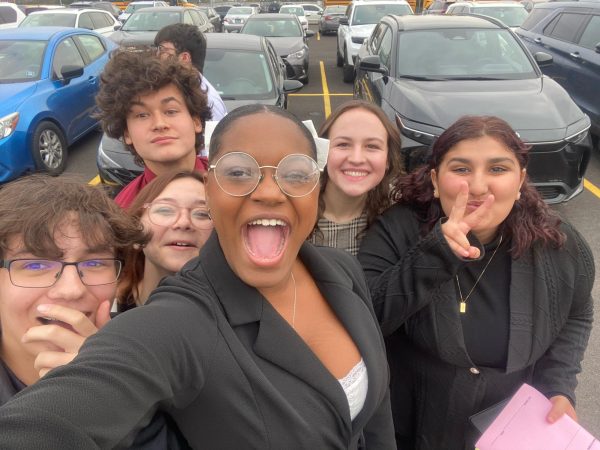
Speech: A Performance of Self
Speech is not just about talking, it’s about communicating, connecting, and captivating.
Members of the team describe it as “a community where you’re able to express yourself” or “a program to speak everything you want to in real life.” Whether it’s performing poetry, persuasive speaking, or dramatic interpretation, students use their voice to entertain, inform, and move their audience.
And for those who think it’s all about memorizing lines or standing stiffly in front of a crowd, think again. Speech is about building confidence, finding your voice, and exploring the art of spoken word.
The Heart of the Team
At its core, the speech team is more than just a performance group. It’s a family. A creative, and supportive community where growth is guaranteed, not just as a speaker, but as a person. Students describe it as
● “A community where you’re able to express yourself.”
● “Drama, energy, wall-talking, competition, and performance.”
● “The community that is always blossoming.”
One of the most meaningful parts? Seeing people react. “When someone tells you your words meant something to them,” Graziano said, “it creates a bond. It makes you feel loved. It gives you a reason to keep performing.”
Ghanchi added, “I only talk about personal experience in speech. That’s what makes me comfortable, speaking to people who actually listen.”
Myth vs. Fact: Breaking the Speech Stereotypes
There are plenty of misconceptions about speech, and the team is quick to clear them up.
Myth: Speech is the same as debate.
Fact: It’s not. Debate is about argument. Speech is about expression. It’s also known as forensics and includes events like poetry, storytelling, drama, humor, and impromptu speaking.
Myth: You have to perform in front of huge crowds.
Fact: Most performances are in front of small groups and judges. The idea of “public speaking”
is overdramatized.
Myth: Speech is boring and nerdy.
Fact: Speech is fun. It’s lively. There are dramatic performances, original writing, and even duo acts. Practices are full of energy — people laughing, crying, supporting each other.
Myth: It takes up too much time.
Fact: Like any activity, it requires dedication — but it’s manageable. And it’s worth it. The benefits stretch far beyond high school.
Myth: You have to be a great speaker to join.
Fact: Most people start off quiet, nervous, or unsure. Speech teaches you how to grow.

Overcoming the Fear Together
Public speaking is one of the most common fears, and many team members admit they were terrified when they started.
“I was scared to say the wrong thing. Scared to freeze,” Julia Mueller said, “But over time, I realized: people are actually listening. They want to hear what I have to say.” Practicing with a supportive group and getting consistent feedback helps students gain confidence, not just in their performance, but in their voice.
Speech turns introverts into leaders. It teaches poise, professionalism, and the ability to connect with an audience. “You can mess up,” said Ms. Curlee, one of the coaches, “but the words still matter.” Mueller added, “You don’t have to be loud to be heard.”
A Blossoming Community
Ask anyone on the speech team to give you a tagline, and you’ll hear phrases like
● “The community that is always blossoming.”
● “Drama, energy, wall-talking, competition, and performance.”
● “A team group where you’re allowed to speak opinions.”
Speech is where students, especially those who rarely speak up in daily life, express their inner selves. One student said she only performs pieces based on personal experience, and that ability to open up in a safe, supportive space has made all the difference.
For these students, and many others, it’s not just about words, it’s about connection. “When someone tells me that what I said impacted them,” Graziano said, “it makes me feel loved. It gives me a reason to keep going.”
